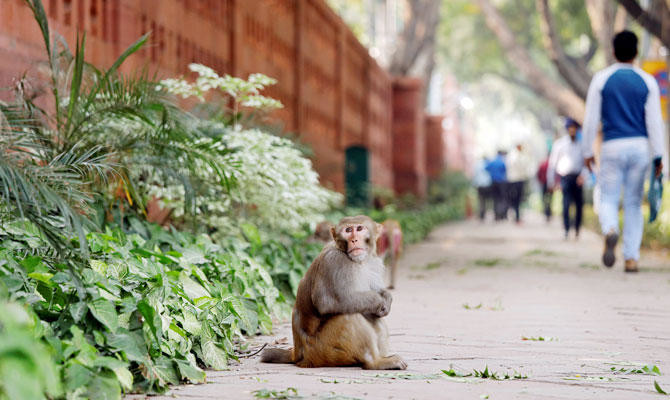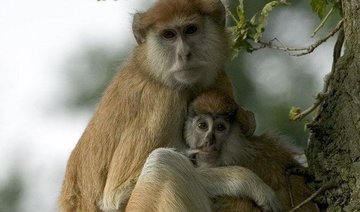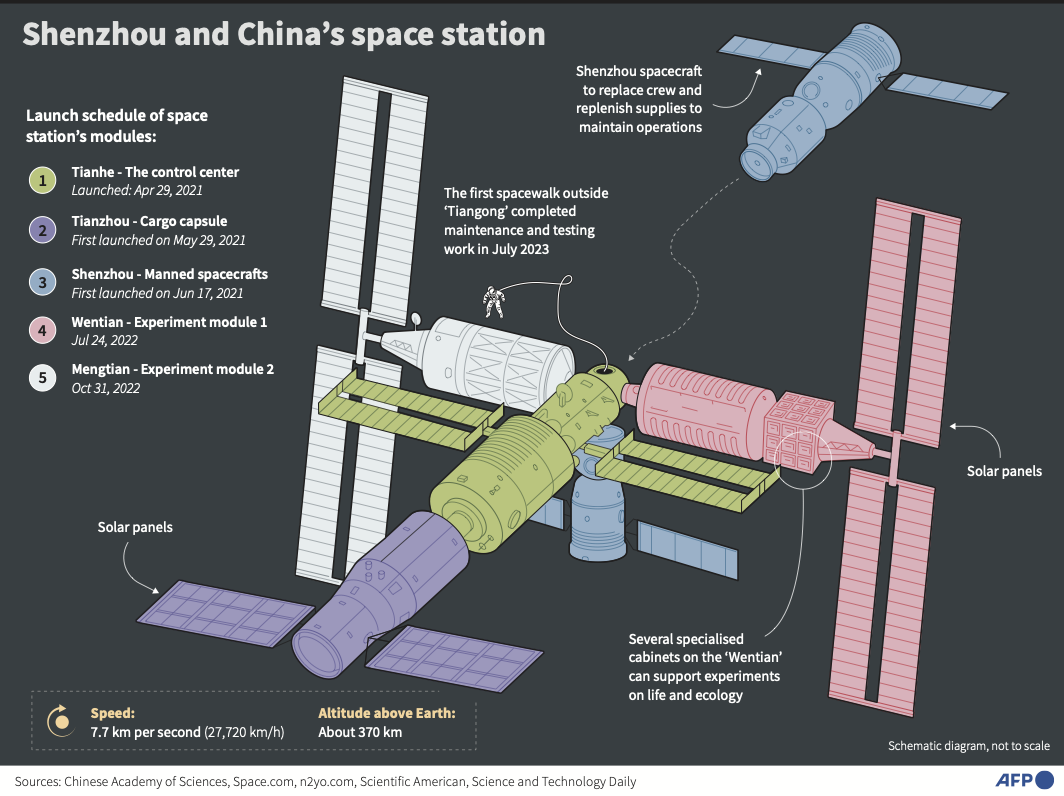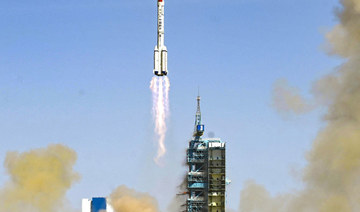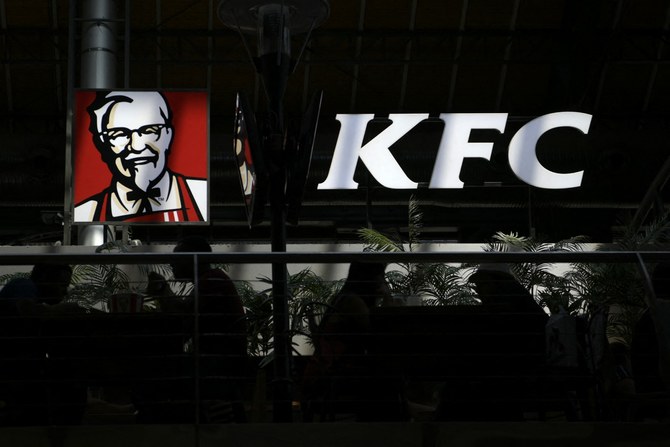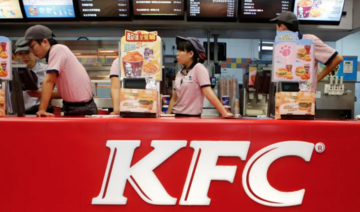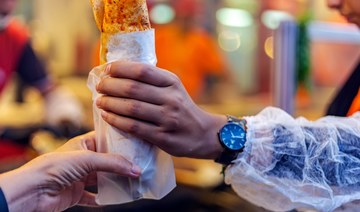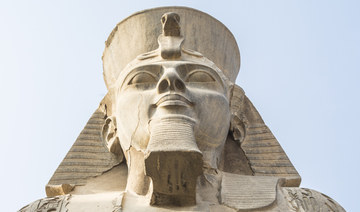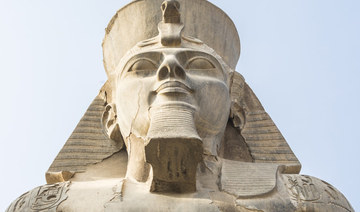NEW DELHI: India’s government faces a tough re-election battle next year but first it must deal with an opponent as wily as any political rival, troops of monkeys that have become a big threat around its offices in New Delhi.
Red-faced rhesus macaques have spread havoc, snatching food and mobile telephones, breaking into homes and terrorizing people in and around the Indian capital.
They have colonized areas around parliament and the sites of key ministries, from the prime minister’s office to the finance and defense ministries, frightening both civil servants and the public.
“Very often they snatch food from people as they are walking, and sometimes they even tear files and documents by climbing in through the windows,” said Ragini Sharma, a home ministry employee.
Ahead of Tuesday’s start of parliament’s winter session, an advisory to members of parliament last month detailed ways they could keep simian attacks at bay. Don’t tease or make direct eye contact with a monkey, the advisory said, and definitely don’t get between a mother and her infant.
The rapid growth of cities has displaced macaques, geographically the most widely distributed primates in the world after humans, driving them into human habitats to hunt for food.
Many in Hindu-majority India revere and feed the animals they consider to be connected to the demigod Hanuman, who takes the form of a monkey.
“This socio-religious tradition of feeding has created a vicious cycle,” said ecology researcher Asmita Sengupta.
“They become used to being fed by humans and lose their sense of fear,” said Sengupta, of the Ashoka Trust for Research in Ecology and the Environment.
“They start actively seeking supplementary food and if we don’t feed them, they turn aggressive.”
’APE REPELLERS’
The monkeys have hardly proved an ally for Prime Minister Narendra Modi.
Hundreds of macaques feasting on optic fiber cables strung along the banks of the river Ganges derailed his plan to roll out wifi in his constituency, the crowded 3,000-year-old holy city of Varanasi, in 2015.
Men were hired to swat the monkeys away with broomsticks and slingshots, when then US President Barack Obama toured New Delhi that year, media said.
Some monkey-human encounters have turned tragic.
In 2007, monkeys pushed the deputy mayor of Delhi, S.S. Bajwa, off his balcony to his death. Last month, one of the animals snatched a 12-day-old boy from his mother and killed him in Agra, home to the famed monument to love, the Taj Mahal.
Monkeys have bred rapidly in Delhi and neighboring states as they have protected status, but there is no official estimate of their numbers.
India has tried several strategies to fight the menace.
Several years ago, it brought in larger, black-faced langurs, feared by the macaques, to patrol key areas but that stopped after it became illegal to keep langurs in captivity.
Authorities stumbled on a partially successful solution four years ago, after hiring 40 men to disguise themselves as langurs and squeal monkey-like to try and terrify the macaques away.
“We call them ‘ape repellers’ and they are contract employees,” said a government official, who asked not to be identified. The stratagem works temporarily as the monkeys flee on hearing the calls, but they return once the men depart.
Primatologist S.M. Mohnot recommends sterilization and moving the animals to forests, as well as lifting a ban on their capture for biomedical research and resuming exports of the macaques, as components of a solution.
“The monkey menace can be checked only by a multi-pronged approach,” said Mohnot, the chairman of the Primate Research Center, a federal institute in the western city of Jodhpur.



